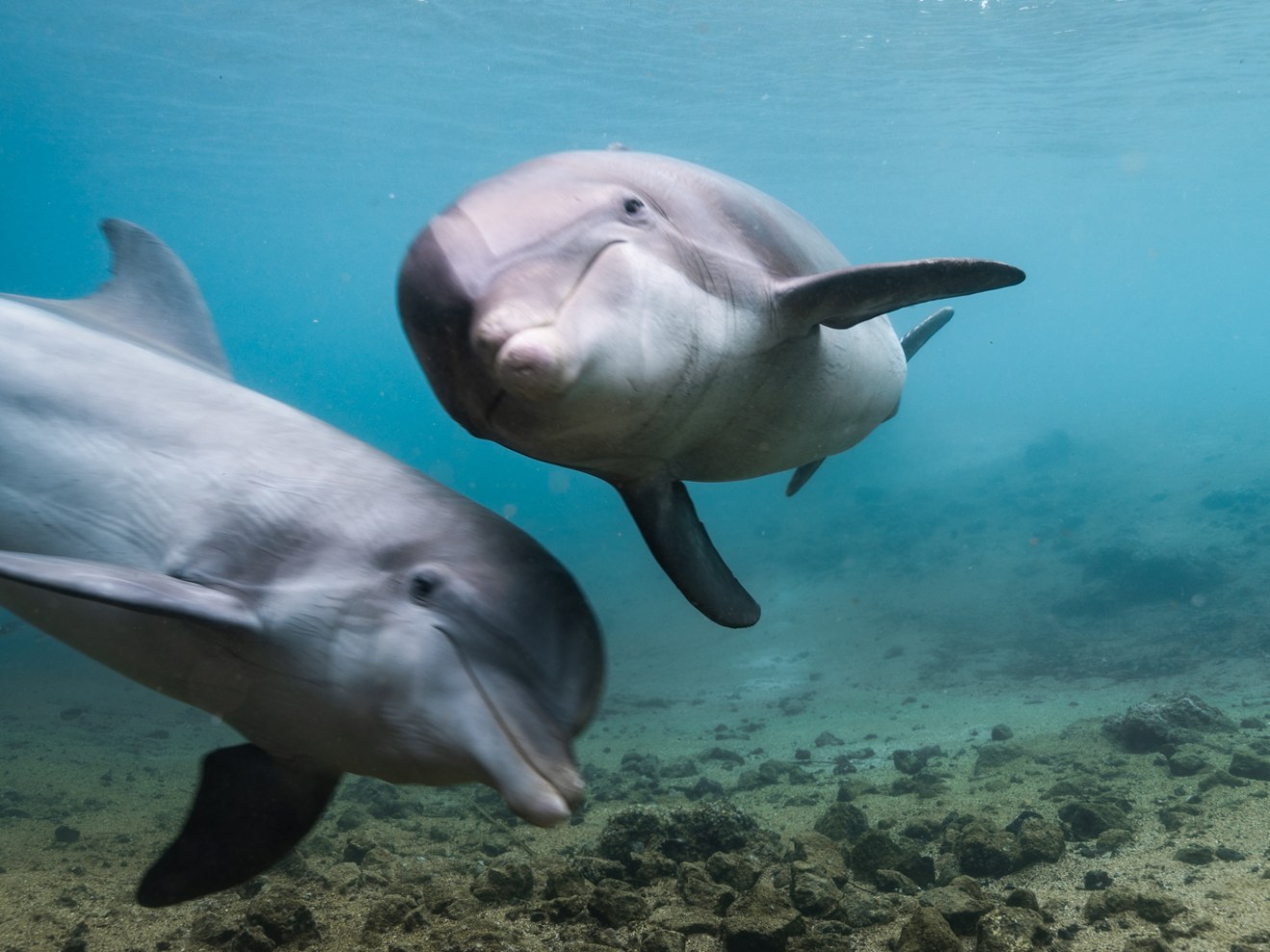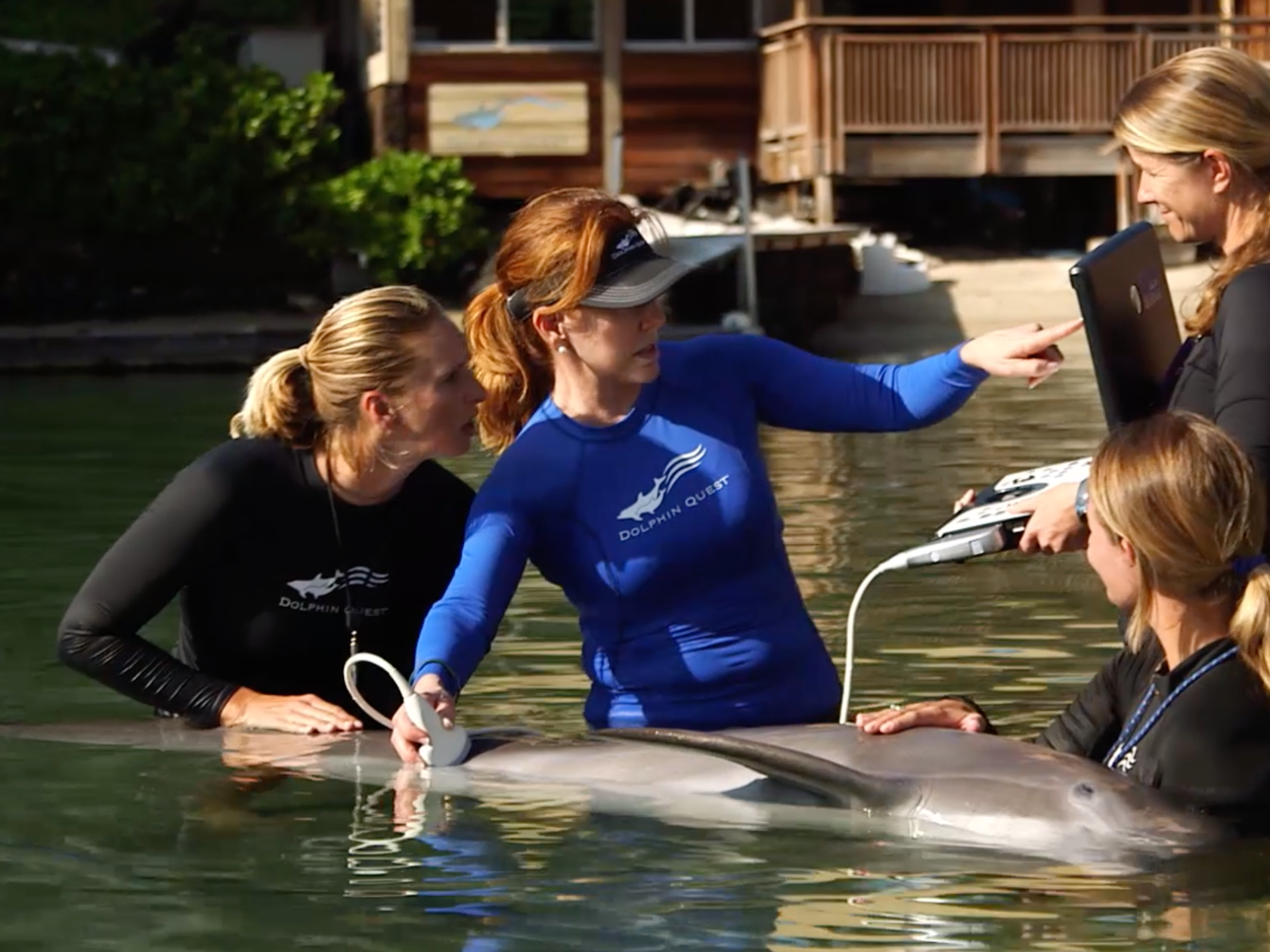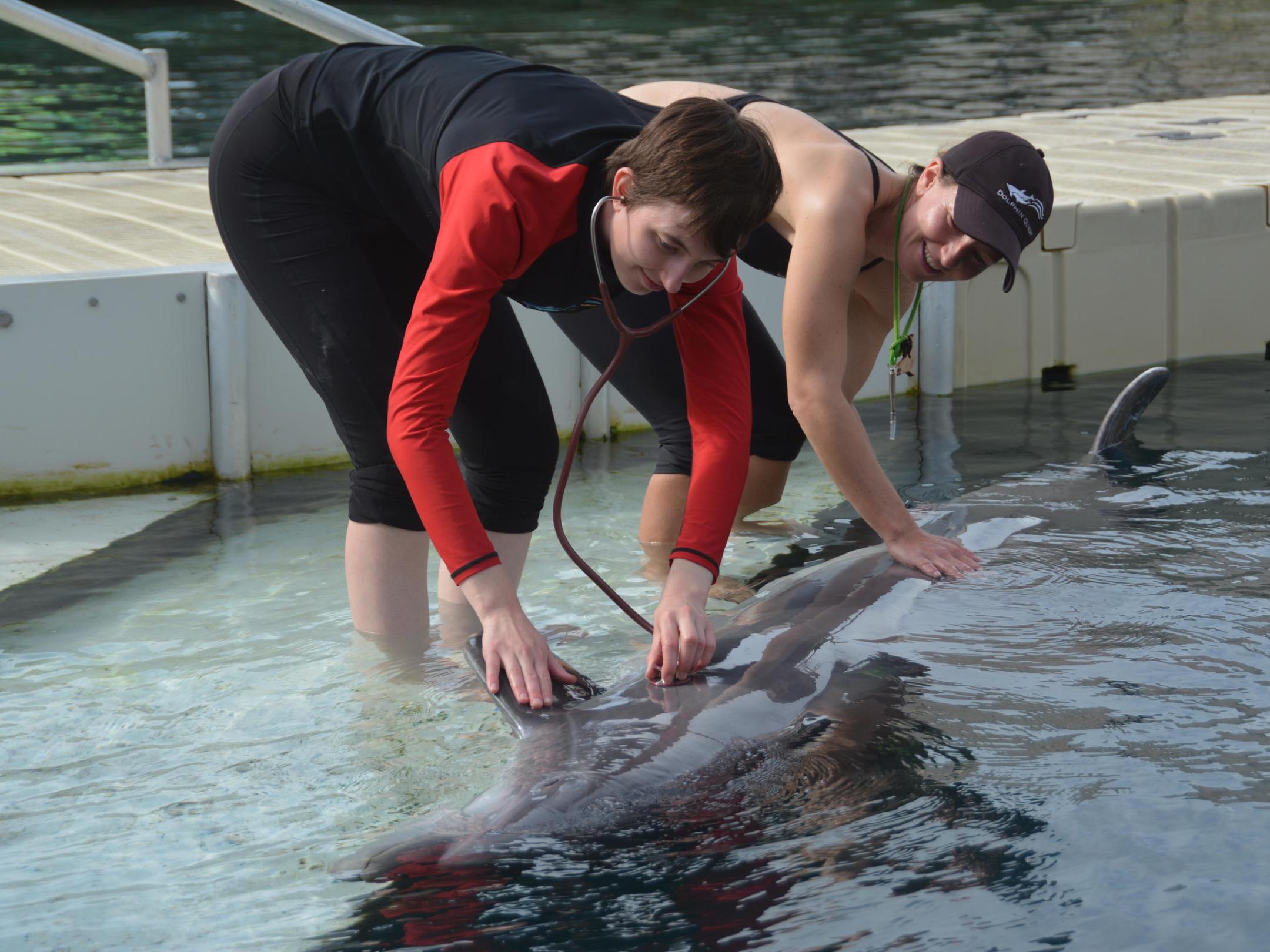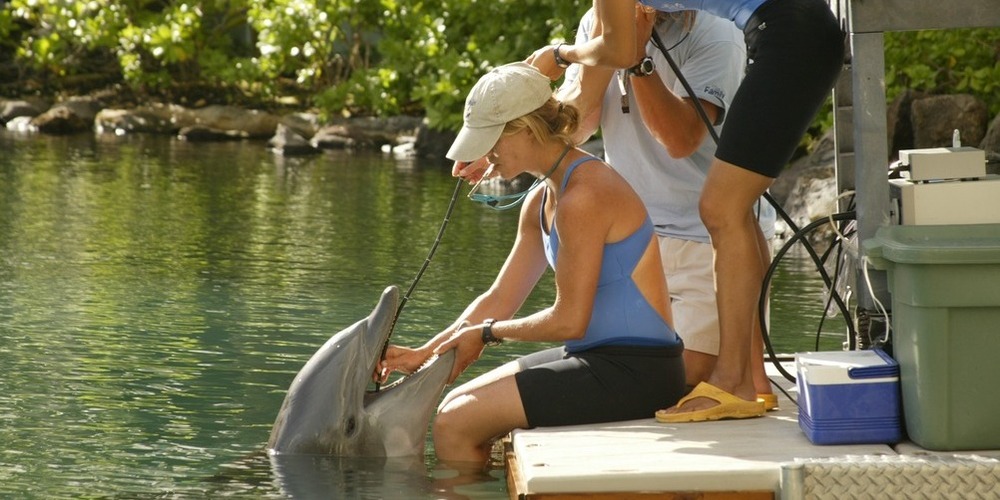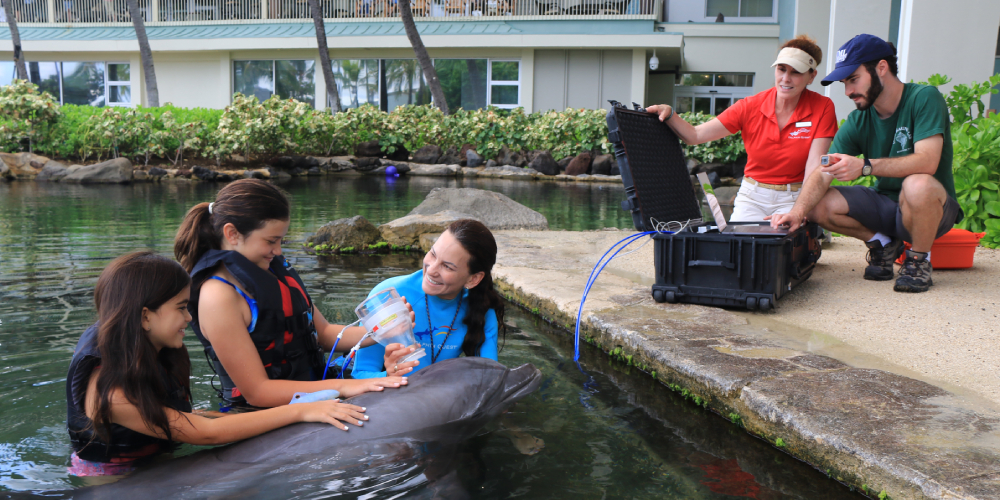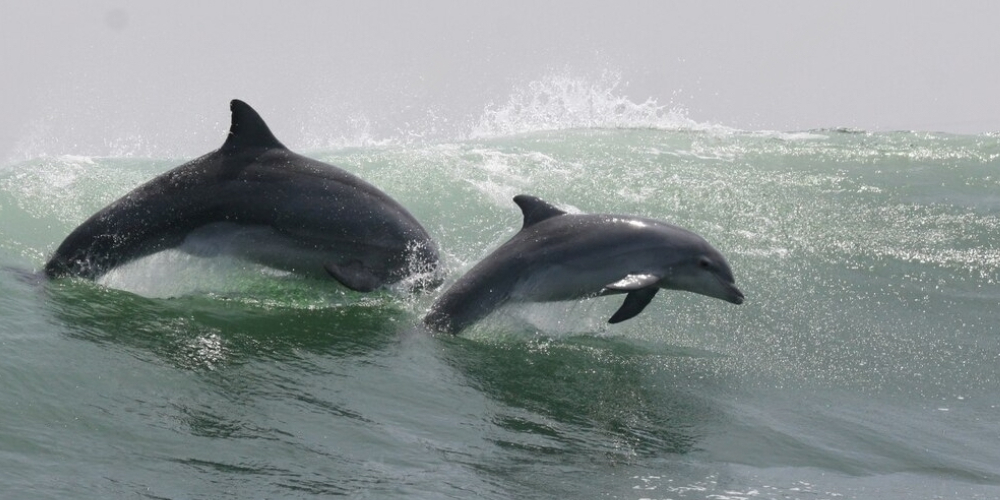THE VALUE OF SCIENCE
Over 70% of the Earth’s surface is underwater, and an incredible 94% of the Earth’s living species exist within the ocean. Unfortunately, our ocean continues to be polluted at an alarming rate and many marine species are at risk of disappearing from our earth forever. Dolphin Quest is here to help.
We understand the importance of protecting our ocean and all marine species and since 1988 Dolphin Quest has dedicated ourselves to supporting vital scientific studies that promote our understanding of ocean ecosystems and marine life and targets the growing human threats on wild populations including noise pollution, industrial activities, exposure to contaminants, and entanglement.
We partner with universities and research organizations to unite our expertise in conservation science. Using conservation technologies such as drones and bio-logging tags, we help researchers develop, calibrate, and validate conservation tools at Dolphin Quest before applying these methodologies to wild populations to ensure their accuracy and effectiveness.
Our projects are diverse and connect and collaborate with local people, partner organizations, and government agencies to make a positive impact across the globe.
FUNDING ANALYSIS
Dolphin Quest continues to contribute to scientific discovery through financial donations and in-kind support.

Dolphin Quest
Financial Donations
Dolphin Quest’s commitment to donating a portion of their proceeds, received from guests that do an onsite dolphin encounter, to support scientific studies on marine animals exemplifies a proactive approach to environmental stewardship, fostering research crucial for marine conservation.
By contributing financial resources to these studies, Dolphin Quest actively participates in safeguarding marine ecosystems, highlighting the importance of corporate social responsibility in preserving our oceans’ biodiversity.
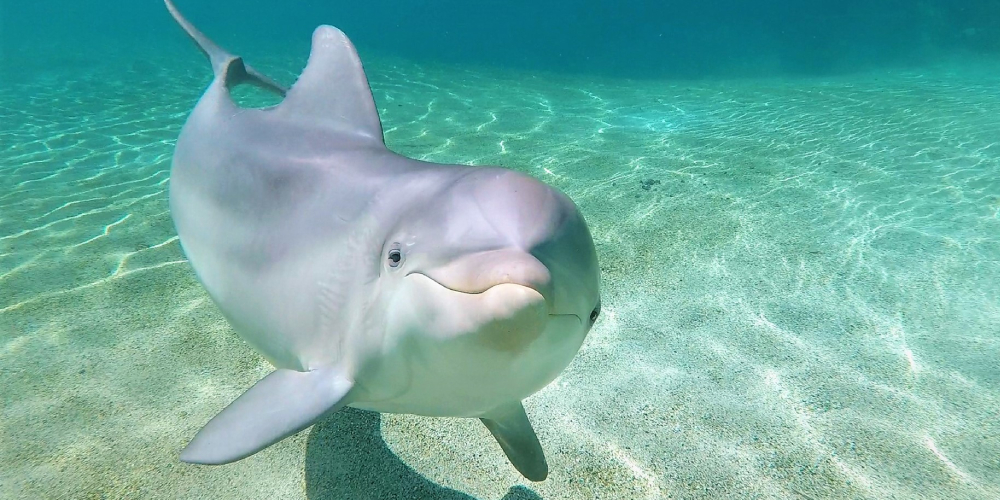
Public
Financial Donations
The public’s donations towards scientific studies on marine animals serve as a vital lifeline for ongoing research, enabling scientists to conduct crucial investigations into species conservation, habitat preservation, and ecosystem health.
Each contribution from the public signifies a shared responsibility and commitment to understanding and protecting marine life, fostering a collaborative effort towards safeguarding our oceans’ future.
Dolphin Quest
In-Kind Support
Dolphin Quest’s provision of in-kind support for scientific studies on marine animals underscores their dedication to advancing research and conservation efforts.
By offering resources, expertise, access to their facilities and animal care specialists, along with baseline data from our healthy animals, Dolphin Quest plays a pivotal role in facilitating critical studies that enhance our understanding of marine life.

